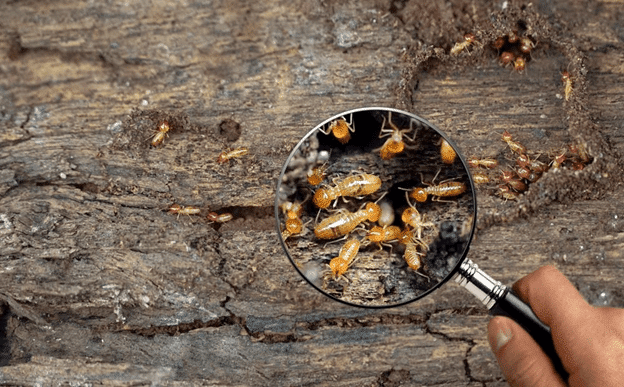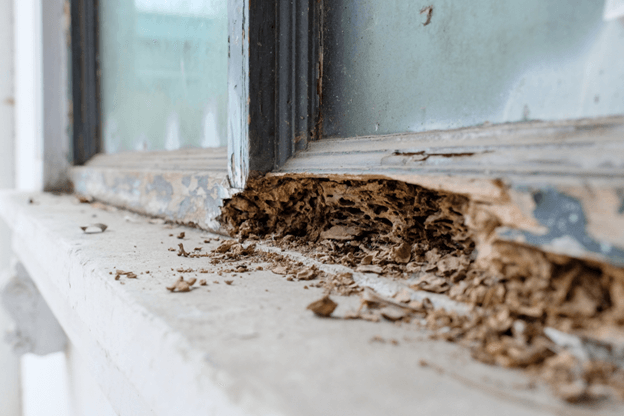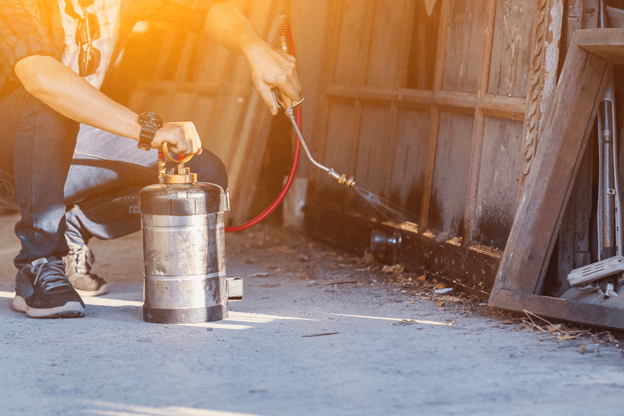
Termites have always been a real threat to Australian homeowners and especially in the warmer climate that Queensland provides. Along with regular pest control, termite control is even more necessary due to the potential damage these little critters can cause.
Although termites tend to thrive in warm weather like most pests, many homeowners mistakenly believe that their homes are safe from termite infestation during the colder months of winter. Unfortunately, this line of thinking is very common, but it’s also misguided. Termites don’t just simply disappear during cold weather and become dormant and inactive. In fact, termites can be just as much of a threat to your home during winter as they are any other time of the year in Queensland.
This article will be highlighting why termites remain a threat during winter, the signs of a termite infestation, as well as effective termite treatment options for Queensland homeowners.
Termite’s Winter Behaviour
Most of us are aware that termites thrive by feeding on wood and can cause serious damage to homes and other structures if the problem is left untreated. Although termites are secretive creatures, their behaviour is often more obvious during the warmer months. One reason for this is that homeowners are generally more active during spring and summer, getting out in the yard to tend to the lawns and garden, doing odd jobs and repairs around the house and so on. This increases the likelihood of coming across signs of termite activity.
Most homeowners are nowhere near as active outdoors during winter, and therefore a termite infestation could go unnoticed until the weather warms up again. Termites don’t die off during winter, and neither do they become inactive. Therefore, termite control during winter is just as vital as it is during any other season.
Termites need water, food and warmth to survive, and in colder weather, they tend to retreat further underground where the earth is warmer. Alternatively, termites will also seek shelter, warmth and food in people’s homes during cold weather. Winter can actually increase the risk of termites infesting your home, so never be lulled into a false sense of security, believing your home is not in danger simply because the weather is cold.
Most people heat their homes during winter, providing a nice comfortable environment for termite nests to thrive. Any dry wood found in your home, whether it be inside the walls or down in the foundations, will provide a constant food source for termites to feed on. Naturally, this will result in serious structural damage over time. Termites are survivors and have evolved to learn that homes and structures provide everything they need to survive through the winter months. Without termite control, once they’re in your home, they may never decide to leave.

Signs of an Infestation
Homeowners need to be diligent when it comes to termites all year round, so you should regularly search for any signs of a termite infestation in your home. Periodic termite inspections carried out by a pest control professional will give you peace of mind, as well as potentially discover a problem early and rectify it before it gets out of hand and causes major damage.
When inspecting your home between visits by your pest control expert, what are some signs of an infestation that you should be on the lookout for?
Mud tubes
If you have an infestation of subterranean termites, there will likely be evidence of mud tubes. Serving as protection, termites use these tubes to travel from the ground to the food source in your home and mud tubes will often be located around the home’s foundations. They are easy to detect and are often built with soil and termite droppings.
Sounds
Yes, termites can and do make noises. If termites are in the walls and they feel threatened, they communicate with one another by banging their head against the wall. This can be heard with the human ear. Another sound indicative of termites is a rustling paper sound. Termites tunnel through to the surface of the wood and can therefore be heard scratching away behind paint layers on the walls or wallpaper.
Blisters in wood flooring
If you have wood flooring, a wooden staircase or anywhere else where there is exposed wood, if you notice buckling or blistering in the wood, this could be an indication that termites are present.
Damaged or hollow wood
Hollow or damaged wood as a result of termite feeding may not always be apparent, as the damage could be hidden behind the walls. If you hear a hollow sound when tapping on the walls where the framework is, this is an indicator of termites. Exposed wood that is hollow or damaged is more obvious; if you detect blistering, damaged or hollow wood, book in for termite control and termite treatment immediately.
Termite droppings
Every living creature has droppings, and termites are no exception. Keep an eye out for small mounds of pellets (termite droppings) on window sills and floors. As termites feed on dry wood, these mounds may resemble piles of sawdust.
Bubbling beneath wallpaper or paint
The paper-coating drywall or plasterboard materials contain cellulose, a substance termites love to feed on. If termites are present and are devouring this paper, bubbling underneath the wallpaper or paint on your walls will be a definite indicator that it’s time to call in termite control.
Windows/doors that are hard to open
Sometimes, this can be due to swelling from water damage or the weather. Other times, when doors and windows are hard to open or close, it can be a sign that termites are present in the structures. Termites not only compromise the structural integrity of the materials they eat, but they also leave behind moisture that warps the wood.
Termite Barriers & Treatments
If you suspect you have termites, arrange for a professional to carry out a termite inspection. If termites are discovered in your home, a termite treatment plan will be devised to ensure termite control and eradication of the pests.
Blue Chip Termite & Pest Control offers a range of termite treatment options. The best solution for your home will depend on our evaluation of your particular infestation. For example, our treatment range includes below-ground baiting systems, direct chemical injection, along with dusting and foaming treatments to rid your property of harmful termites.
However, our preferred method is to use termite treatment barriers. These barriers use the chemicals Termidor or Termidor HE. While other products repel termites, this product actually destroys colonies of termites on the premises, and the insects can’t detect the chemical. It’s perfect for effective termite control. When termites come into contact with Termidor, they typically die within a few days.
Nine out of every ten termite treatments we do utilises the effectiveness of termite barriers. We don’t just get rid of termites, we destroy their colonies.

Book a Winter Termite Inspection at Blue Chip Termite & Pest Control
For effective control all year round, book a winter inspection with Blue Chip Termite & Pest Control today. This will give you complete peace of mind. Hopefully, your home will be given the all-clear, but if termites are found, our team will eradicate them before they have a chance to cause any serious damage. So, get in touch today and arrange an inspection.
